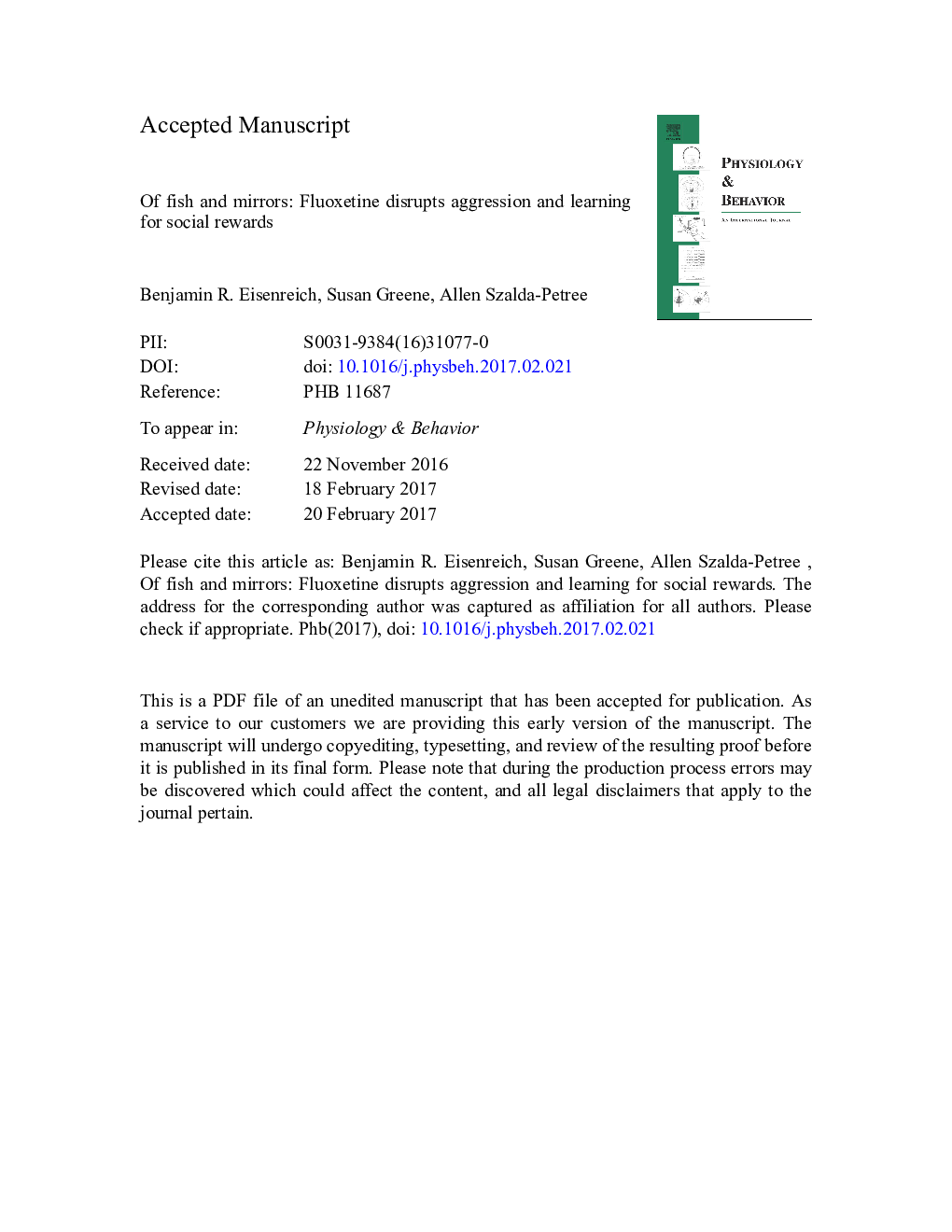| Article ID | Journal | Published Year | Pages | File Type |
|---|---|---|---|---|
| 5593939 | Physiology & Behavior | 2017 | 20 Pages |
Abstract
Aggressive signaling is a key social behavior of male Siamese fighting fish (Betta splendens). Successfully establishing a territory and defending it from intruders has direct fitness effects, making Betta splendens a prime model for studies examining the biological underpinnings of aggressive behavior. Current research has outlined serotonin transporter pathways as one key component for the engagement and coordination of aggressive behavior in Betta splendens. Using the selective serotonin reuptake inhibitor fluoxetine, we examined the impact of 10 μmol exposures on associative learning and aggression between mirror and conspecific social reinforcers. Our results provide clear evidence that exposure to fluoxetine reduces aggression and impairs learning independent of social reinforce type. In addition, our results provide support for motor inhibition of aggressive behavior as the main behavioral mechanism of action for fluoxetine. Placed within the broader context of behavioral syndromes, our results, along with others, implicate serotonergic pathways as a key biological correlate of the bold-aggressive phenotype.
Related Topics
Life Sciences
Biochemistry, Genetics and Molecular Biology
Physiology
Authors
Benjamin R. Eisenreich, Susan Greene, Allen Szalda-Petree,
